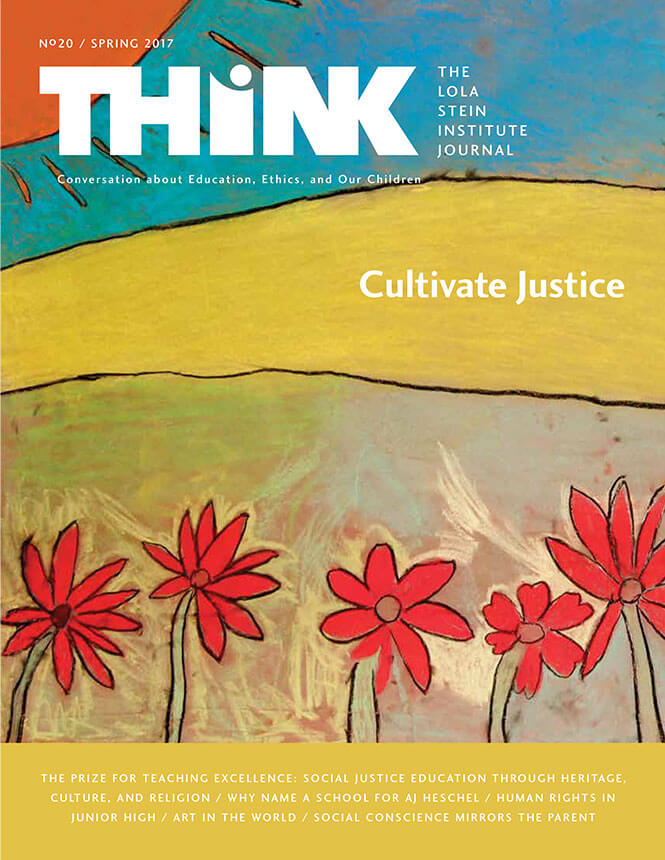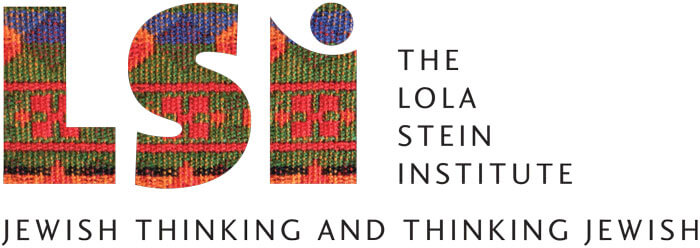- How We Teach

- First Column
- Second Column
- Third Column
- Case Studies

- First Column
- Second Column
- Culture & Community

- First Column
- Second Column
- News & Views

- Admissions

- First Column
- Second Column
- Support Us

- About

- First Column
- Second Column
- Parent Hub
- Attend an Open House
- Take a Tour
- Donate Now
- Calendar
- Blog
- 416-635-1876
- Search
Erin Buchmann: Indigenous Awareness
First Prize
First prize went to Erin Buchmann of Kirkland Lake Composite District School in Kirkland Lake, Ontario, Canada. The school where Buchmann teaches is a public high school where approximately 25% of the students in Grades 9 through 12 self-identify as First Nations, Metis, or Inuit. The project was called Indigenous Awareness.
Close to half of the students in the Kirkland Lake school are at risk of not graduating. Buchmann identified several reasons for these low rates, including the town’s socio-economic status, the school’s large catchment area (some students travel for 70 minutes each way by bus), the lack of connection between the school and the community, and an underappreciation of the importance of education.
Incorporated into a course on Aboriginal Studies, this exciting project aimed to raise student awareness of social issues facing Indigenous peoples in Canada,
including mental health challenges and the abuse, disappearance and murder of Aboriginal women. The thinking behind the project was that if the school created opportunities for Indigenous students to celebrate their heritage, and the school were a more culturally welcoming space, students would be more likely to succeed, both in school and in their communities. With the ultimate goal of leading students toward reconciliation and social action, the Indigenous Awareness project engaged students through art, performance, community initiatives, social media, and civic advocacy.
The result: a 100% pass rate in the course and so much demand for a spot in the Aboriginal Studies class that a second section has had to be created for the next academic year. The extraordinary effort of this teacher and her students resulted in a sense of pride and belonging for the Indigenous students in the school and a palpable increase in awareness of Indigenous issues within the school and the community.
Canada’s Aboriginal History
The Indigenous Awareness project was well timed as, in recent years, non-Indigenous Canadians have become more aware of their past and present relationship with Indigenous communities. This awareness focuses primarily on the legacy of residential schools and treaty rights, as well as the current challenges First Nations Communities face, such as access to clean water, health care, and mental health resources.
In this project, students examined how historical events, legislation such as the Indian Act, and residential schools where Indigenous children were forced to live have impacted Indigenous and non-Indigenous Canadians. Students investigated how these historical events continue to pose a range of challenges for Indigenous people in Canada today.
Indigenous Values
The foundation of the project was the exploration of a core of traditional Indigenous values called The Seven Grandfather Teachings:
- Wisdom: To cherish knowledge is to know wisdom (Beaver)
- Love: To know love is to know peace (Eagle)
- Respect: To honour all of Creation is to have respect (Buffalo)
- Courage/Bravery: Bravery is to face the foe with integrity (Bear)
- Honesty: Honesty in facing a situation is to be brave (Sabe)
- Truth: Truth is to know all of these things (Turtle), and
- Humility: Humility is to know yourself as a sacred part of Creation (Wolf)
The goal in using the teachings is to create an atmosphere of acceptance and cohesion between Indigenous and non-Indigenous peoples through a better understanding of Indigenous culture and belief. To this end, the project sought to explain how Indigenous identity is linked to the physical environment and to identify contemporary issues related to this connection. It explored the historical basis for the contemporary relationship between Indigenous and non-Indigenous peoples in Canada and explained the need to promote dialogue and reconciliation to improve this relationship. It identified social, political and economic issues currently being addressed by indigenous peoples and communities in Canada with a particular focus on Indigenous youth. It described the varying perspectives on the Indigenous right to self-determination. And, finally, it provided opportunities to celebrate Indigenous culture within the school.
The Seven Grandfather Teachings were presented to the class through a number of vehicles: story, song, video, theatre, guest speakers, and traditional crafts, among others. Readings included current news stories about the ongoing inquiry in Canada into murdered and missing Aboriginal women, the recommendations of the Truth and Reconciliation Commission, and the lack of mental health support in many Indigenous communities.
What They Did
The teacher, Erin Buchmann, began the project by working with a group of students, both Indigenous and non-Indigenous, to examine areas of need in the school. The first step to make Indigenous culture more visible and present in the school was accomplished by painting a classroom and adding couches to create a welcoming environment. As well, a large mural in the school’s main foyer was painted by students to showcase the Seven Grandfather Teachings.
Next, an installation of 40 red dresses was created as part of a campaign called The Red Dress Campaign. The dresses were hung inside and outside of the school, each with a plaque about a murdered or missing Aboriginal woman. This presentation was promoted locally and many community members, including local Elders, politicians, media and trustees of the school board attended. In honour of the work that was done to draw attention to this issue, the students were presented with a painting commissioned by a member of the school’s support team.
The students also produced and performed a play called Wooly’s Umbrella, by Elizabeth Hill, to much acclaim. The play examines the relationship between an Indigenous woman and a doctor who wishes to prescribe her medication for her perceived schizophrenia. This play focuses on the legacy of residential schools, the suicide crisis plaguing remote Indigenous communities, and the disconnect between what support is needed and what is actually offered in these communities. As a part of the research and preparation for the performance, students made their own moccasins, attended workshops, invited guests in to the class, and learned traditional practices such as smudging and tobacco offerings.
Students performed this play for the community and as a part of the Sears Drama Festival where they were commended for their artistic, vocal, and performance abilities. Students also received the prestigious Adjudicator’s Award for courage for tackling such a sensitive issue with dignity and compassion. They performed the play six times.
For their work on Indigenous issues and mental health, they were named as ambassadors for the Paul Hansell Foundation’s conversation plate #205 by the region’s Member of Parliament, Charlie Angus. These plates are intended to start a conversation about mental health and are supposed to be passed on from one person to another in an attempt to GET LOUD about mental health.
In an effort to elevate the conversation to the national level, students started a Twitter campaign to have comedian Rick Mercer accept the ConvoPlate. They even created a Rick Mercer-style “rant” about mental health and the lack of support in remote Indigenous communities. While they did not receive confirmation from Rick Mercer himself, their tweets were noticed by several prominent Canadians.
The multi-faceted nature of the Indigenous Awareness project clearly inspired the students, engaged the community, and achieved its lofty goals. THINK congratulates Erin Buchmann and her Aboriginal Studies class of 2016 for their dedication and downright awesomeness.
Ruth Burnstein is a lawyer whose 30-year career was in the business of law publishing. She worked at Thomson Reuters, Butterworths, the Nova Scotia Barristers’ Society, and was vice-president of Canada Law Book until her retirement in 2010. Ruth now works as a law publishing consultant and volunteer literacy tutor.
PREVIOUS ARTICLE
The Prize for Teaching Excellence 2016NEXT ARTICLE
Todd Clauer: Upper School Social Justice ProjectSpecial Feature
Second PrizeTodd Clauer: Upper School Social Justice ProjectFirst PrizeErin Buchmann: Indigenous AwarenessA Report by Ruth BurnsteinThe Prize for Teaching Excellence 2016What Do We Have in Common?Finding the Familiar in Grade 2Our Sages Tell Us
A Mirror Reflection of UsThe Social Conscience of Our ChildrenColumns
An Interview with Dana EzerThe Jewish Foundations of a Junior High Human Rights CurriculumRecommendations for Children and the People Who Love ThemGood Books by Gail BakerPerspectives
 The Lola Stein Institute (LSI) is a centre of inventive educational thinking and addresses the challenge to re-frame schooling for the exigencies of our times.
The Lola Stein Institute (LSI) is a centre of inventive educational thinking and addresses the challenge to re-frame schooling for the exigencies of our times.









